“Teacher, how do you say arepa in English?”
So, back to the question. How do you say arepa in English? Well, the truth is, there is no simple answer. Let’s begin by looking at some dictionary entries. Collins Spanish Dictionary describes an arepa as a “large tortilla or maize cake” (Collins, 2000, p.58). According to www.wordreference.com, an arepa is “arepa, corn cake, corn tortilla” (WordReference, 2014). This is what most English people think of when tortilla or cake come to mind:
If we look at other foreign foods which have been adopted into English cuisine, particularly when we are referring to a final dish, we see that more often than not the original word for it is used. Thus in English, we have pizza, sushi, guacamole, ceviche, and tortilla (the flat Mexican kind). No attempt was made to anglicise these words or create a new word for them. This translation technique is known as a borrowing or loan word and is common among all languages. A borrowing is when “the source language word is transferred directly to the target language” (Munday, 2008, p.56).
This is the approach taken by that most trusted of language tools here in Colombia, Google Translate, with the word arepa. The translation provided by Google Translate is “arepa” (Google, 2014). It also suggests pone, which I have personally never heard of.
Though I might personally be able to relate to iktsuarpok (the frustration of waiting for someone to turn up), I cannot pretend to know the feeling of fernweh (feeling homesick for a place you have never been to), or even to have been aware of such a sentiment. How, then, do we translate an idea or feeling which itself does not exist in English? Well in this case, Iyer has translated it through the use of a different medium, visual instead of textual, and accompanied it with an example of explicitation, which Munday describes as a translation technique which may be used for “the explanation of a source text cultural item or event, such as US Thanksgiving or UK April Fool's joke" (Munday, 2012, p.90), where the source language term is explained in detail.
So it would seem that the best answer to the original question, “How do you say arepa in English?” is arepa. We do not eat arepas in England, therefore no word for it already exists. Although it may be possible to use the borrowing arepa in English, not many people would understand it by itself. Therefore, you would need to accompany it with an explanation of what an arepa is, maybe including what it’s made of, and how it’s served and eaten. Hopefully, one day Colombian restaurants will become more widespread in England, more people will have the opportunity to try and know what an arepa is, and the word arepa will roll off the tongues of English people as easily as sushi or guacamole. Until that day happens, it would be recommended to explain what an arepa is. As with any translation, it is important to consider the following questions:
1. Does the object or idea exist in the target language culture?
2. Is there space to explain the term?
3. How much does the target language culture know about the source language culture?
The thing I most want to emphasise with this article, however, is that word for word translations do not always exist, and it is not always possible or practical to use borrowings, as we do with many food terms in particular. This is why in English we do not translate “tomar un café” as “take a coffee”. We prefer “have a coffee” or “drink a coffee”. It is important to look for and learn the different collocations that words are used with. Collocations are the words which are used in company with other words. Even where a word for word translation does exist in English, it may not always be appropriate to use it in the new context; it may not have the same impact, meaning or connotation when used in a different culture and context. Where a word for word equivalent does not exist, we must look for a more appropriate term.
Going back to that most loved of language tools, Google Translate, it is worth noting that although it provided an acceptable translation of arepa in this case, it does not always do so, and great care must be taken when using it. If we look at two more examples using the word arepa, we can see some of the pitfalls of Google Translate. We can see that in the first screenshot, Google Translate has provided an acceptable translation. It has successfully translated “Comí una arepa” as “I ate an arepa” (Google, 2014).
If you are looking to translate a longer phrase which does not appear in a dictionary, I would recommend looking at the forums on WordReference and also www.linguee.com. Linguee searches the internet for examples of the search word or phrase, and takes the results from bilingual websites. These bilingual websites often belong to large, international organisations such as the European Union or the UN, and can therefore be trusted as reliable translations, as these organisations employ professional translators. The search word or phrase is also shown in context, in the full sentence, along with the source of the term, so you can get an idea of how the word or phrase is used. Another excellent website for more colloquial or slang terms is http://www.urbandictionary.com/. This website shows user-provided definitions of some of the more vibrant and colourful expressions in English, and if a term or phrase is not found on WordReference or Linguee, it is possible that it can be found on UrbanDictionary.
A final reason for NOT using Google Translate is that you will not learn anything by copying and pasting things into and out of a machine translator. If your main purpose for interacting with the English language is to learn English or improve it, learn the grammar and get a good dictionary.
Butterfield, J. Collins Spanish Dictionary. Glasgow: Collins, 2000.
Google. 2014. Google Translate. [Online]. [Accessed 23 June 2014]. Available from https://translate.google.com/
Iyer, A. 2014. Found in Translation. [Online]. [Accessed 23 June 2014]. Available from https://www.behance.net/gallery/100-Days-Project-2013/9633585
Munday, J. 2008. Introducing Translation Studies: Theories and Applications. 2nd Edition. Abingdon: Routledge
Munday, J. 2012. Introducing Translation Studies: Theories and Applications. 3rd Edition. Abingdon: Routledge
WordReference. 2014. Online language dictionaries. [Online]. [Accessed 23 June 2014]. Available from http://www.wordreference.com/es/en/translation.asp?spen=arepa
PHOTOS
All photos used with permission:
Arepa: http://commons.wikimedia.org/wiki/Category:Arepas#mediaviewer/File:Arepas_con_chorizo.jpg
Tortilla: http://commons.wikimedia.org/wiki/Category:Maize_tortillas#mediaviewer/File:01_Quesadillas_con_guacamole.jpg
Cake: http://commons.wikimedia.org/wiki/File:Cake,_Downpatrick,_April_2010_%2801%29.JPG
Anjana Iyer illustrations: https://www.behance.net/gallery/100-Days-Project-2013/9633585
RECOMMENDED LINKS
www.wordreference.com – excellent online dictionary with forums for discussion of longer terms/expressions.
http://www.oxforddictionaries.com/ - excellent online English dictionary.
https://translate.google.com/ - machine translation tool.
www.linguee.com – online dictionary which shows examples from bilingual websites, good for terms and phrases of more than one word.
http://www.urbandictionary.com/ - online dictionary for colloquial and slang terms.
© Jonathan Hemming
Translation England

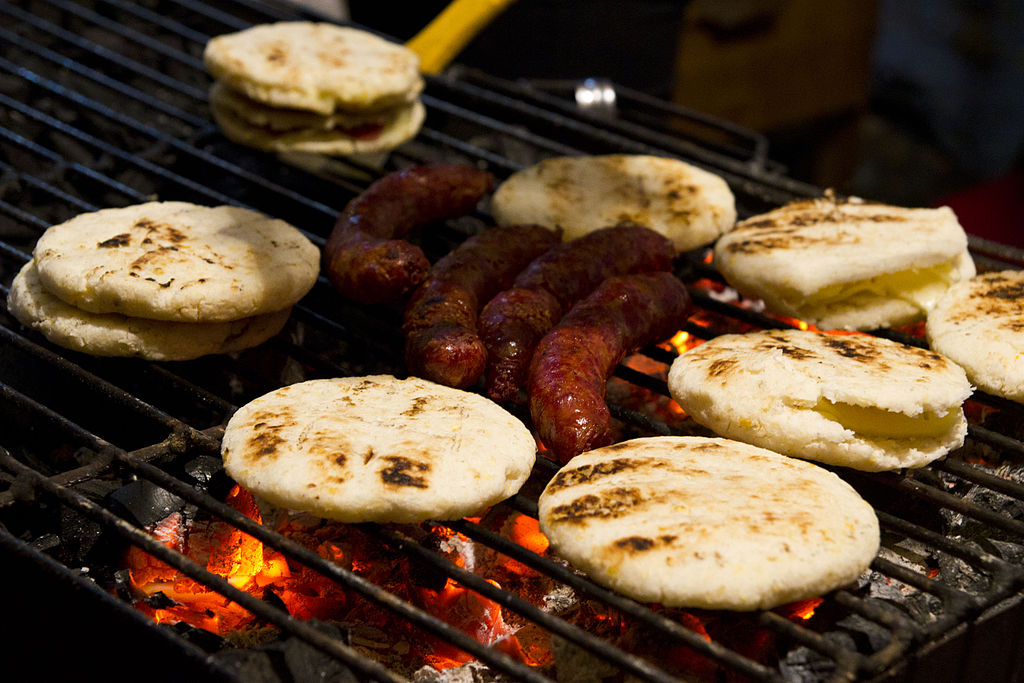


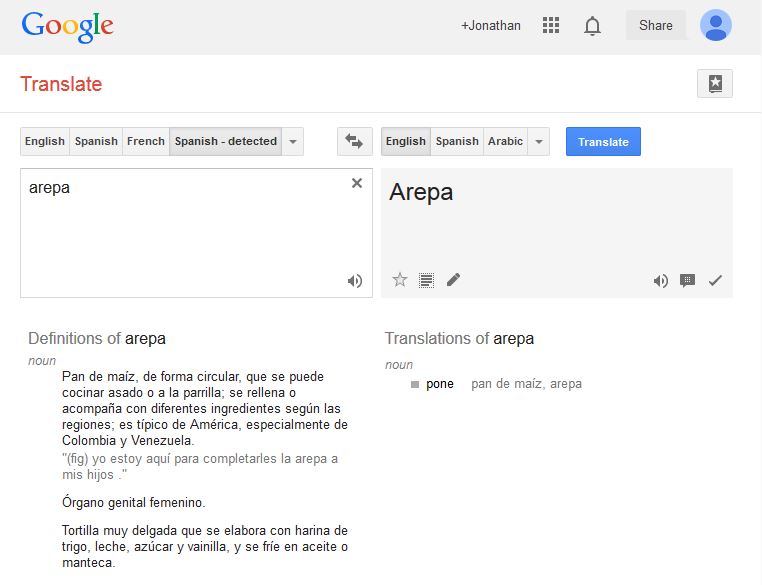
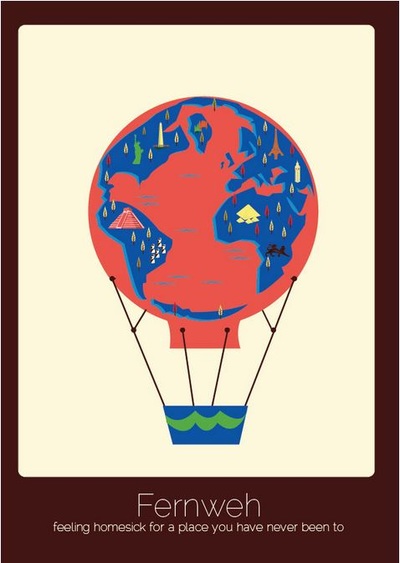

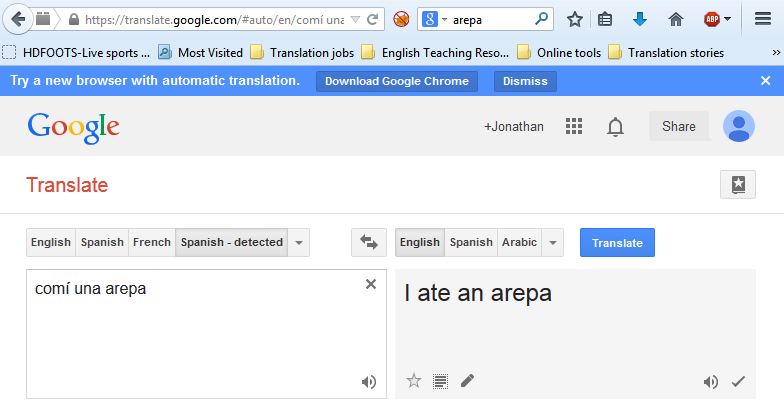
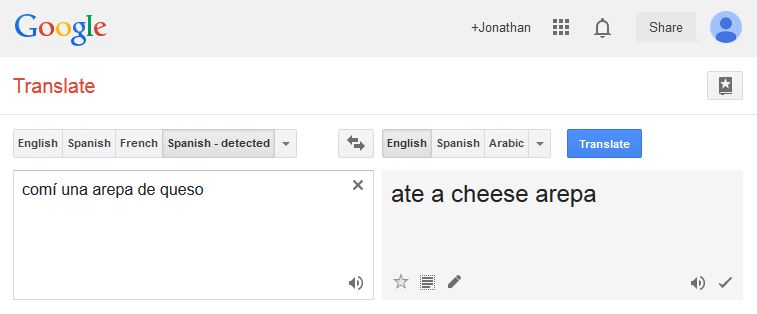
 RSS Feed
RSS Feed
